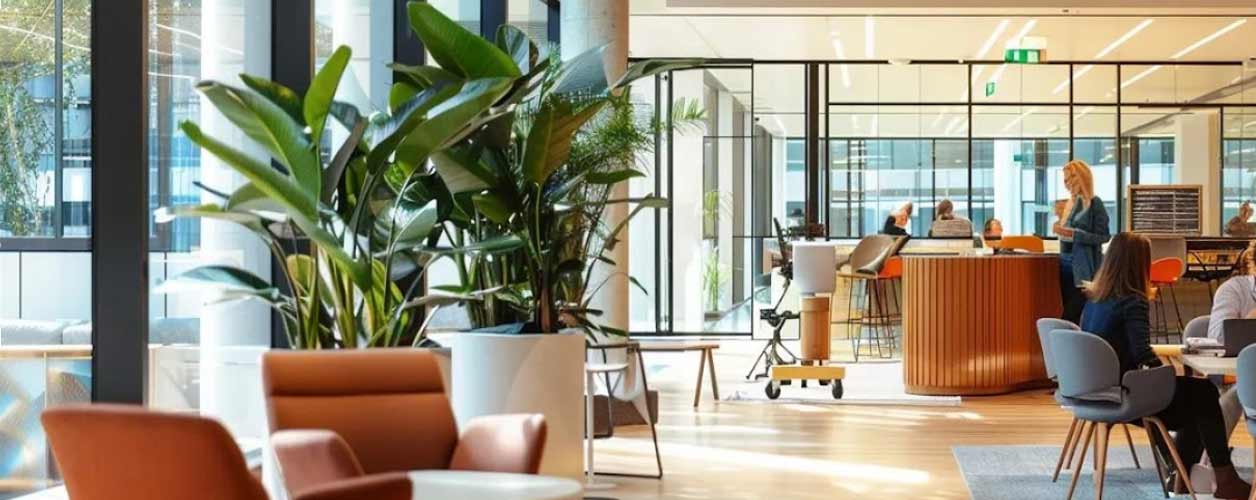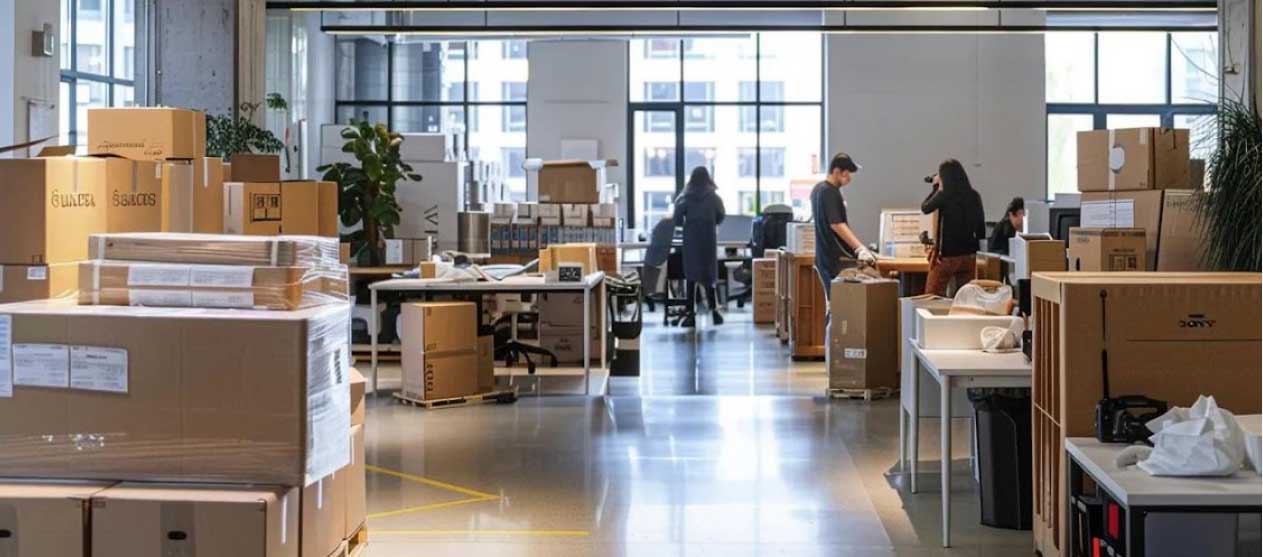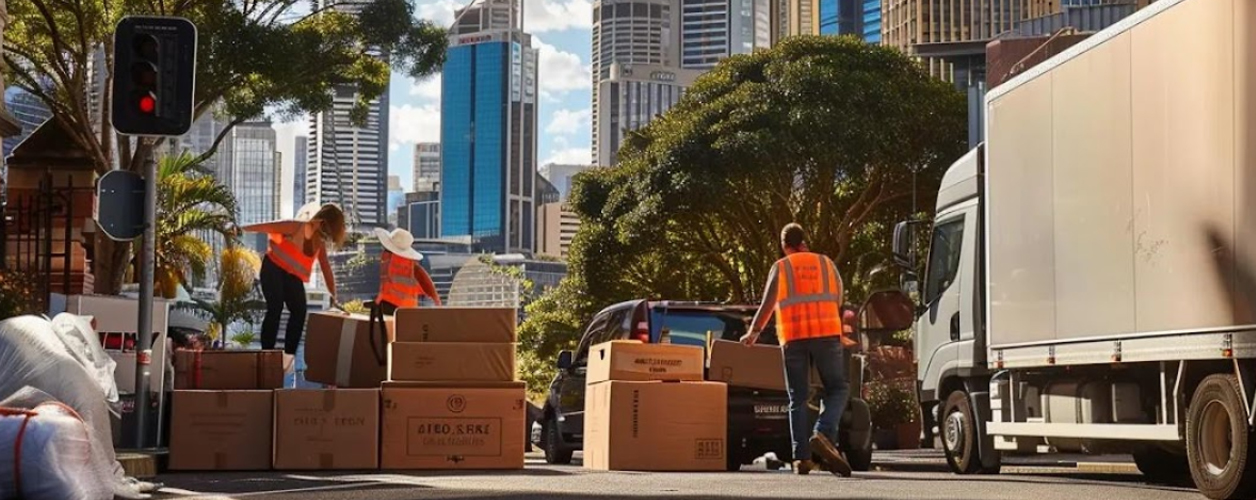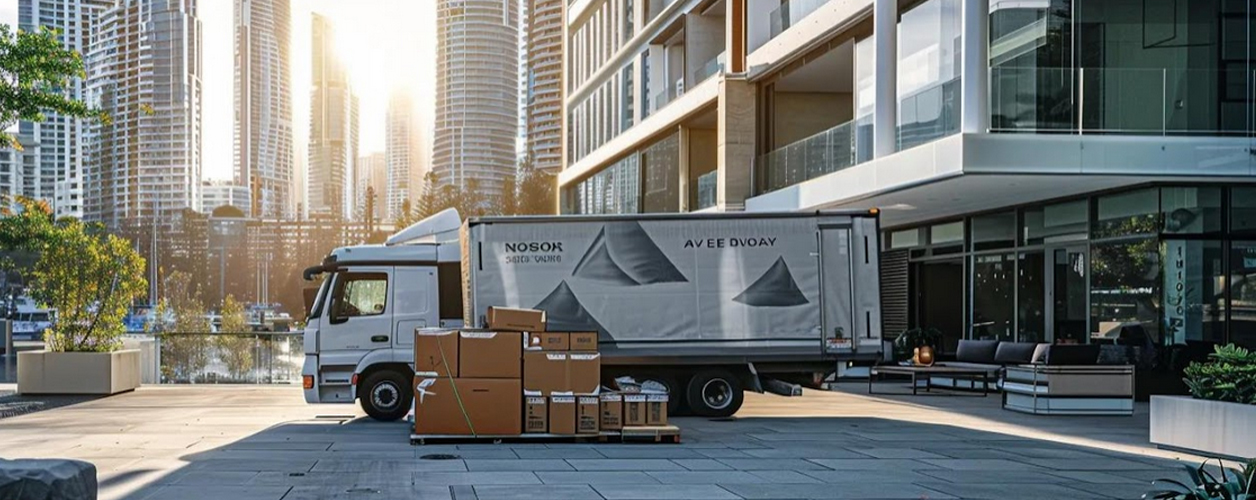Office relocation in Melbourne is a complex process that demands careful planning, strict adherence to local regulations, and professional services. Businesses must minimise downtime, ensure safe equipment transport, and stay within budget. This guide covers creating a relocation checklist, budgeting, selecting specialised services such as IT setup and furniture installation, understanding cost factors and timeframes, and choosing the best office relocation company available in Melbourne. With practical advice and clear steps, professionals help businesses navigate relocation efficiently while considering sustainability and local market trends.
Let's explore the detailed steps for planning, available services, anticipated costs, timeframes, and how to choose the right office relocation company in Melbourne.
What Are the Essential Steps in Office Relocation Planning in Melbourne?
Effective planning begins with a comprehensive strategy covering logistics and operations. Key steps include preparing a detailed checklist, designing the new office layout, and establishing a realistic budget. Following these steps prevents costly mistakes and delays.
What Should an Office Relocation Checklist Include?
A robust checklist should cover:
- Inventory assessments and documentation of all assets (IT equipment, furniture, documents, specialised machinery)
- Detailed timelines for packing, disassembly, transport, and reassembly
- Updates on insurance coverage and vendor booking confirmations
- Contingency plans for unexpected delays or emergencies
This checklist serves as a valuable tool to track progress and ensure effective communication among team members and relocation service providers.
How to Plan Office Space for a Smooth Move?
Office space planning ensures a smooth transition. Key actions include:
- Assessing the new workspace layout and determining desk and workstation arrangements.
- Working with architects or space planners to design a layout that meets productivity, safety, and accessibility standards • Considering flexible areas, conference rooms, and leisure zones
- Creating detailed floor plans (often with CAD software) to simulate traffic flow and ergonomics
A phased approach is recommended so that critical departments such as IT remain operational during the transition.
How to Budget Effectively for Office Relocation in Melbourne?
Effective budgeting requires:
- An itemised list covering moving services, packing materials, IT/infrastructure costs, new furniture, and potential downtime expenses
- Accounting for contingencies (typically 10–15% of the budget)
- Obtaining detailed quotes from multiple removalists and specialised movers
- Including hidden costs such as insurance, permits, and cleaning fees
Regular monitoring and adjustments are key to preventing budget overruns.
Which Office Relocation Services Are Available in Melbourne?
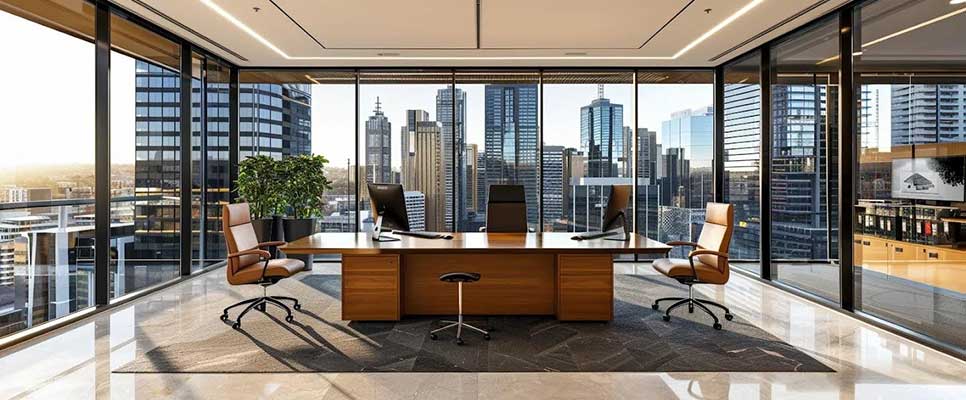
Melbourne offers a wide range of professional relocation services designed to streamline moves while ensuring safety and minimal downtime. Services include specialised IT relocation, handling of office furniture, and comprehensive packing/unpacking solutions.
What Do IT Relocation Services Include?
IT relocation services involve:
- A pre-move survey by IT specialists to plan disassembly and reassembly
- Use of specialised packaging to protect sensitive hardware (servers, computers, network equipment)
- Data backup services to reduce the risk of data loss
- Installation and testing of systems post-move, ensuring immediate functionality
These services minimise risk and downtime, ensuring technology assets are operational swiftly.
How Are Office Furniture Relocation and Installation Handled?
Key points include:
- Professional movers employ specialised equipment (dollies, padded blankets) to secure bulky and delicate furniture
- Items are catalogued, dismantled when necessary, and reassembled according to the pre-planned layout
- Experienced installation teams optimise the placement of desks, chairs, conference tables, and storage units
This coordinated approach allows a faster setup and reduces the potential for damage.
What Are the Benefits of Professional Packing and Unpacking Services?
Professional services provide:
- High-quality packing materials and systematic labelling for secure transport
- Detailed inventory documentation that simplifies tracking
- Efficient organisation upon arrival, with items placed in their designated areas
- Recycling of packing materials to support environmentally friendly practices
This service reduces stress and enables a quicker return to normal operations.
How Much Does Office Relocation Cost in Melbourne?
Cost planning is central to any relocation. Expenses can vary depending on office size, distance, service rates, and additional requirements.
What Factors Influence Office Relocation Costs?
Cost factors include:
- The volume and weight of furnishings
- Distance between the old and new locations
- Complexity of dismantling and reassembling equipment
- Need for specialised services (e.g., IT relocation, secure document transport)
- Additional factors like peak moving season, traffic conditions, and specific building requirements (e.g., lift access)
A detailed site survey by the moving company helps identify these variables for an accurate estimate.
How to Minimise Costs Without Sacrificing Quality?
Cost-saving tips include:
- Obtaining multiple quotes from reputable office movers
- Negotiating package deals
- Handling non-specialised tasks (like administrative packing) in-house
- Choosing off-peak moving dates to secure lower rates
- Reusing packing materials and opting for eco-friendly options
Careful planning and resource allocation can ensure quality service while managing costs effectively.
How Long Does an Office Relocation Take in Melbourne?

The duration of an office move depends on office size, service complexity, and logistics. Generally, the process takes several weeks, from planning to final setup.
What Are the Typical Phases of an Office Move?
An office move typically involves:
- Pre-move planning: Developing a checklist and booking vendors
- Packing: Cataloguing, labelling, and securely packing all items
- Disassembly and transport: Safely dismantling, loading, and moving items
- Installation: On-site reassembly, including IT and specialised systems
- Post-move adjustments: Unpacking and fine-tuning the setup
For a medium-sized office, expect the entire move to span about 2 to 4 weeks.
How to Minimise Downtime During Office Relocation?
To reduce downtime:
- Use advanced planning and strict timelines for each phase
- Schedule heavy moving tasks during off-hours
- Consider staggered moves so critical departments transition first
- Pre-configure new office technology for rapid setup
- Communicate clearly with staff and assign roles effectively
Buffer periods in the schedule help manage unforeseen delays.
What Are Realistic Timeframes for Different Office Sizes?
- Small offices: Approximately 1–2 weeks
- Medium offices: Around 2–4 weeks
- Large enterprises: 6 weeks or more (allowing extra time for complex setups and unexpected issues)
A detailed project timeline with milestones is essential to set realistic expectations.
How to Choose the Best Office Relocation Company in Melbourne?
Selecting the right relocation company is crucial. Businesses must evaluate potential movers based on expertise, reliability, cost-effectiveness, and customer service.
What Questions Should You Ask Potential Office Movers?
Key questions include:
- "How many office relocations have you completed in Melbourne?"
- "Can you provide references or testimonials from similar businesses?"
- "What protocols do you use for safeguarding IT equipment and sensitive documents?"
- Details about insurance coverage, contingency plans for delays, and how they coordinate with building management
Clear, documented answers assure that the mover can handle complex tasks while minimising disruption.
What Are the Unique Benefits of Local Melbourne Office Movers?
Local movers provide:
- In-depth knowledge of local regulations, building codes, and traffic patterns
- Optimised routes to minimise delays
- Closer relationships with local authorities and property managers
- Customised service packages tailored for Melbourne’s diverse office environments
- Faster communication and responsiveness to unexpected issues
This local expertise can significantly improve the efficiency of the move.
How to Evaluate Office Relocation Company Reviews and Testimonials?
To assess reliability:
- Check multiple independent review sites
- Request and review case studies or before-and-after examples
- Contact previous clients for firsthand feedback about timeliness, professionalism, and damage handling
- Consistent positive reviews and documented success are strong indicators of a trustworthy company.
What Are Melbourne-Specific Considerations for Office Relocation?

Relocating within Melbourne requires attention to local factors that can affect the move. Considerations include:
- Navigating busy traffic and urban logistics
- Adhering to strict local building regulations and permit requirements
- Selecting locations based on accessibility, cost, and industry trends
Strategic planning around these factors ensures a smoother relocation process.
How Do Melbourne Traffic and Logistics Affect Office Moves?
- Peak traffic hours and road closures may delay moves
- Coordination with local authorities and off-peak scheduling helps mitigate delays
- High urban density and limited parking require careful logistical planning, including securing permits for large trucks and scheduling lifts for high-rise buildings
What Building Regulations Should You Know in Melbourne?
Key regulations include:
- Access permissions, elevator usage, and noise restrictions during moves
- Requirements for approved moving plans or environmental impact statements in certain buildings
- Compliance with fire safety, accessibility, and environmental standards
Early engagement with building management ensures a smoother process without compliance issues.
Which Melbourne Suburbs Are Popular for Office Relocation?
Popular areas vary by industry:
- The CBD is favoured for finance, law, and corporate headquarters due to its prestige and accessibility.
- Suburbs like Southbank, Docklands, and Port Melbourne attract creative and tech companies with modern infrastructure.
- Areas such as Carlton, Fitzroy, Richmond, and Collingwood offer a mix of affordability and vibrant business environments suited for startups and smaller enterprises.
Careful evaluation of transportation access, amenities, and employee preferences is key to selecting the ideal location.
How Can Sustainable Practices Be Integrated Into Office Relocation in Melbourne?
Integrating sustainable practices not only protects the environment but also enhances a company’s reputation for corporate social responsibility. Options include using eco-friendly materials and methods throughout the move.
What Are Eco-Friendly Packing and Moving Options?
Consider using:
- Renewable or recyclable packing materials (biodegradable boxes, reusable crates, non-toxic packing peanuts) • Digital inventory systems that reduce paper waste
- Energy-efficient vehicles and route planning software to lower fuel consumption • Carbon offset programs that contribute to renewable energy or reforestation projects
How to Reduce Waste and Carbon Footprint During Office Moves?
To minimise waste:
- Donate or recycle unused office supplies, outdated electronics, or redundant furniture
- Use digital documentation to reduce paper use
- Coordinate with local recycling centres for bulk pickups of recyclable materials
- Encourage carpooling or the use of energy-efficient vehicles during the move
These steps support sustainability while maintaining operational efficiency.
Which Melbourne Movers Offer Sustainable Relocation Services?
Many local removalists now emphasise sustainability by:
- Using eco-friendly packaging and energy-efficient transport methods
- Offering recycling programs and strategic consultations on sustainable building practices
- Providing documented sustainability certifications and customer testimonials supporting green practices
Partnering with such movers can reduce waste management costs and enhance your company's green credentials.
How to Choose the Best Office Relocation Company in Melbourne?
Selecting the right relocation company involves thorough research and evaluation to ensure a smooth move with minimal disruption.
What Questions Should You Ask Potential Office Movers?
When interviewing movers, ask:
- "How many office relocations have you completed in Melbourne?"
- "Can you provide references or testimonials from previous clients?"
- "What are your protocols for safeguarding IT equipment and sensitive documents?"
- Details about insurance, contingency plans, and coordination with building management
Clear answers help confirm the mover’s ability to manage complex relocations.
What Are the Unique Benefits of Local Melbourne Office Movers?
Local movers offer:
- Expertise in local regulations, building codes, and traffic patterns
- Optimised routes that reduce delays
- Established relationships with property managers and local authorities
- Customised services tailored to Melbourne’s diverse office environments
- Faster communication and responsiveness to issues
How to Evaluate Office Relocation Company Reviews and Testimonials?
Evaluate by:
- Checking independent review platforms and case studies
- Contacting previous clients for feedback on professionalism, timeliness, and damage handling • Comparing service delivery to quoted estimates
Consistent positive feedback indicates a reliable and efficient mover.
How Can Sustainable Practices Be Integrated Into Office Relocation in Melbourne?

Sustainable practices can be woven into every aspect of the move for environmental and cost benefits.
What Are Eco-Friendly Packing and Moving Options?
Use:
- Renewable or recyclable materials
- Digital inventory systems to reduce paper usage
- Energy-efficient vehicles and route planning software
- Movers offering carbon offset programs
How to Reduce Waste and Carbon Footprint During Office Moves?
Strategies include:
- Sorting office supplies to donate or recycle unused items
- Leveraging digital documentation over printing
- Coordinating with recycling centres for bulk materials
- Encouraging sustainable transport practices during the move
Which Melbourne Movers Offer Sustainable Relocation Services?
Many local movers now promote sustainability:
- They offer eco-friendly packaging, efficient routing, and recycling programs
- Provide sustainability certifications and green practice testimonials
- Some include consultations on energy use and sustainable building practices at the new location
Final Thoughts
Office relocation in Melbourne demands thorough planning, precise budgeting, and coordination with experienced service providers. By creating a detailed checklist, designing an efficient office layout, and partnering with local specialists—while integrating sustainable practices—businesses can minimise downtime and ensure a smooth transition. Following these steps will not only secure a hassle-free move but will also future-proof your operations and enhance productivity in your new location.






